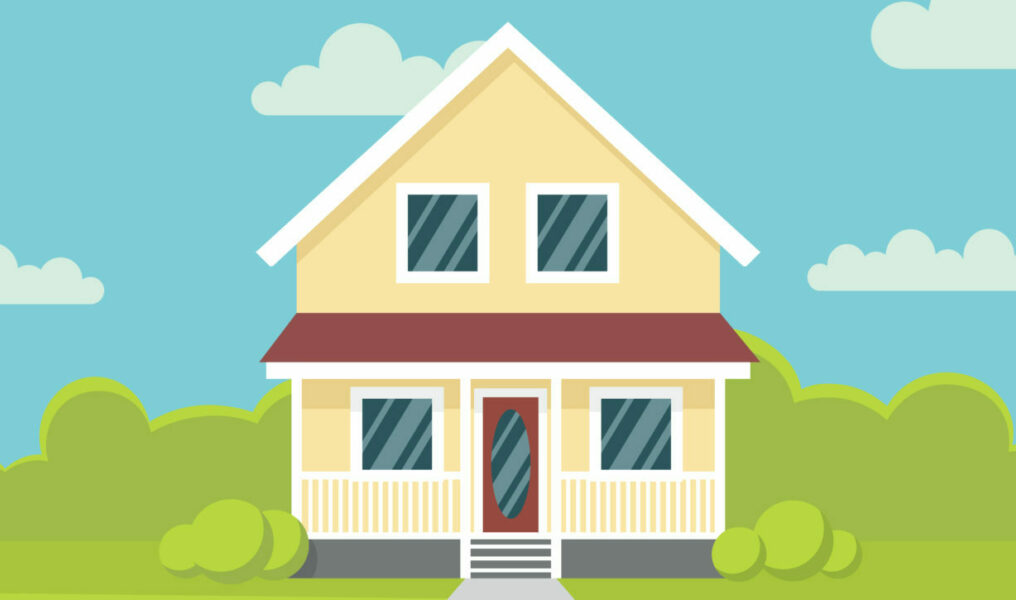Lack of LGBTQ Protections in Fair Housing Act Leave LGBTQ Residents Vulnerable
Finding a good location, comparing rent or mortgage prices and debating whether to use professional movers or getting a self-driven truck rental should be some of the biggest concerns a person has to maneuver when renting an apartment, house or attempting to finance future housing.
However in Michigan, LGBTQ people have another layer of difficulty to contend with when looking: their specific rights are not covered under the nationally-reaching, now 50-year-old Fair Housing Act, nor are they covered in Michigan's more than 40-year-old Elliott-Larsen Civil Rights Act.
Essentially, this leaves Michigan's potential LGBTQ residents dependent on the individual ordinances established by the city in which they wish to move — and the law's blind spots are many across the state.
"So, it's hard to get in the door, it's hard to get a loan, it's hard to rent an apartment and then, because folks living in the intersection of marginalized identities face other discrimination in education and employment and other things, they're more likely to find themselves behind in rent," said Robin Maril, the associate legal director for the Human Rights Campaign.
And, what can make it even more difficult for those who are victimized by housing discrimination, is that they don't always know how to go about dealing with landlords who blatantly provide non-inclusive environments. A 2007 study called "Sexual Orientation and Housing Discrimination in Michigan" recorded a variety of real-life experiences of discrimination to LGBTQ couples seeking housing. For instance, one landlord listed off a list of routine-seeming requirement of "no drugs, prostitution, homosexuality, one-night stands," and more. Sometimes, comments recorded by the study went deeper and bordered on sexual harassment.
"Two women, posing as a lesbian couple were told by a male agent in a small town in Washtenaw County: "Two women don't bother me; its two men I don't understand, I think it's gross. I have no problem with you girls. I kind of like it. I can totally get into that,'" said the report. "He proceeded to inform the testers that if they moved in they could call him anytime to fix anything they needed."
This study was conducted by all of Michigan's Fair Housing Centers that covered all of Metropolitan Detroit, Southeast, Southwest and West Michigan to test how prevalent discrimination really was. The test sent out 120 paired testers who would pose as either heterosexual or same-sex couples who went across the state to apply for housing. To ensure that discrimination was really the motivation of landlords who refused homosexual couples service, the same-sex test subjects had "better credentials — higher income, larger down payment(s), better credit — in comparison to their counterparts." Overall, even in communities that already had existing ordinances to protect LGBTQ rights in the city, 27 percent of tests showed "disparity of treatment based on sexual orientation."
A Habit of Inaction
However, even with roughly a third of couples experiencing mistreatment in this test, overall levels of complaints against discriminatory landlords to Fair Housing Centers were quite low. In the years from 2002 to 2005, The Fair Housing Center of Southeast & Mid Michigan received only six complaints. Flash forward to present day, and complaints over the last three years because of gender identity and general LGBTQ discrimination number at 9.
According to the the Fair Housing Center of Southeast & Mid Michigan Executive Director Pamela Kisch, those numbers don't demonstrate much accuracy. If anything, they might be showing apathy on behalf of discrimination victims because they aren't sure what to do about it.
"We don't get a lot of complaints, but that doesn't mean it's not happening," Kisch said.
Formerly serving as a presidential management fellow at the U.S. Department of Housing and Urban Development in Washington, D.C., Maril agrees with Kisch. She said that especially now for people who are transgender, housing can be especially difficult to establish.
"Unfortunately, one of the effects of having somebody like Ben Carson in HUD is that I feel like we were just on the cusp of being able to communicate to people, 'Hey, guess what? You have rights, go claim them,'" she said. "And then we lost the administration and we now have someone in charge who just says hideous things about specifically trans people. So, it's pretty hard to convince trans people and other LGBTQ people to file a housing complaint with an agency that is also majorly working against them."
A similar study to Michigan's Fair Housing Centers was conducted in 2013 by HUD, but it tested nearly 7,000 email correspondences by same-sex couples attempting to find housing. Its results nearly mirrored those in Michigan, finding that 15.9 percent of gay male couples were discriminated against and 15.6 lesbian couples were during correspondence, and stated that, "The estimates of discrimination presented here likely underestimate the extent to which heterosexual couples are favored over same-sex couples in the rental housing market."
Progressive Steps to Take
But though discrimination statistics look bleak, Maril emphasized that precedents are being set across the U.S. by the couples who do dedicate the time and resources to report their instances of discrimination in the housing market.
"LGBT folks aren't explicitly covered in the Fair Housing Act, however, we do sort of get in the back door a little bit through the interpretation of sex through the statute," she said. "A court in Colorado in 2017 actually granted a couple in which both couples were transgender relief when they were both denied housing when they were trying to rent a town house because the landlord actually explicitly said that he wasn't renting to their family because of their 'unique relationship status,' hinting at both sexual identity and gender discrimination. But the court actually found on the side of the couple that this was illegal discrimination under the fair housing act, under the law."
According to Maril, that was the first time that a federal court interpreted sex to include sexual orientation for the purposes of the Fair Housing Act, meaning that it sets up "a good trajectory" for enforcement in the future.
And, for those couples who think they might have a chance in court to stand up for their rights, Maril recommends familiarizing themselves with their individual town's policies. The HRC Municipal Equality Index at hrc.org is just one way to do that. Beyond this, looking into local policy through community websites might provide methods to file formal discrimination complaints.
"If they are living in a state where they are not covered, I would suggest contacting one of our friends in the litigation movement. If they've got a great case in arguing that they should be covered under the Fair Housing Act, because we do have precedent under the Colorado case," she said. "It's important that folks try to feel empowered and not shut down. So, I think finding a good housing clinic or legal aid for people who are speaking out for a specific LGBTQ litigation group that includes you can be a really good resource, and they can really break down your rights more."
For more information about local LGBTQ rights and ordinances, please visit equalitymi.org or fairmichigan.org.










